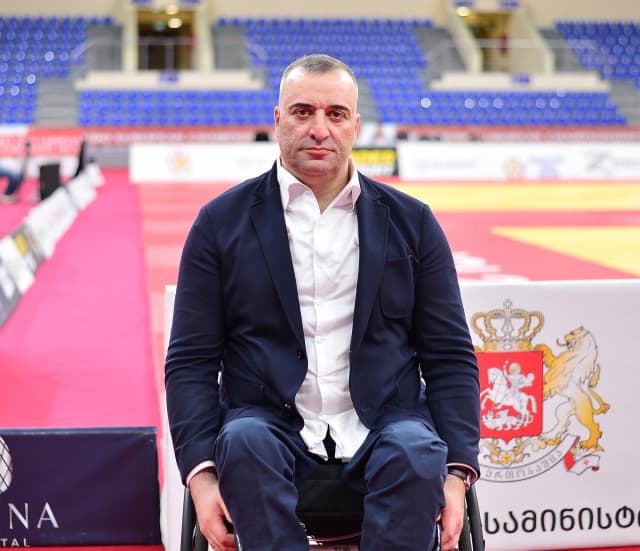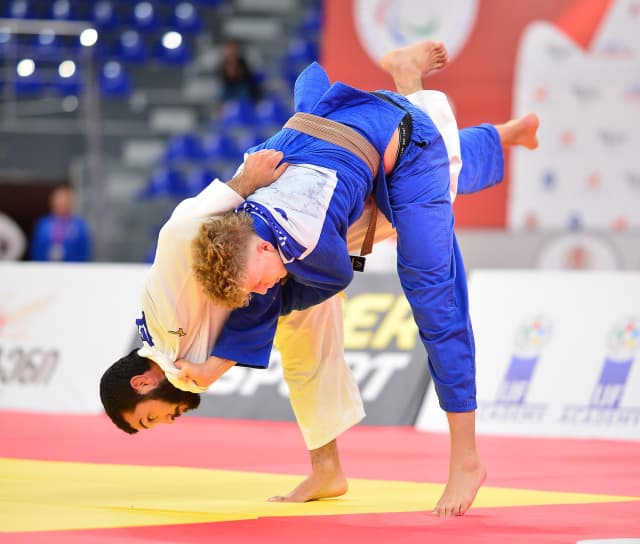“Judo is a traditional sport for Georgian people,” he begins. “It is the same for Para judo in our culture. In our history, the first Paralympic medal came from Para judo, in Rio. Since the Rio Games, we wanted to host a Para judo championship in Tbilisi. We are very happy that it has almost become a tradition to host an annual event in Tbilisi, Georgia, and this weekend for the first ever time we host a Para judo European championship. Of course, our main ambition is to host the world championships in Georgia. We have three current world champion judoka, many European champions, and I think Georgia is a country that deserves to host championships. Georgian people love judo a lot.”
Make no mistake, judo may be Georgia’s flagship Para sport but the nation’s talent reaches well beyond the tatami. President Ionatamishvili explains, “There are 12 Para sports developing in Georgia. The most popular are Para powerlifting and Para fencing. We once hosted a Para fencing event in Georgia. We also host a Para powerlifting event annually and we have even hosted a world championship in Para powerlifting.
Still, I am very proud of our judoka. They give me stimulus, experience and many examples to do more and more for their progress and development. Together with my Para athletes and our judoka, we will create success for our country. In 2016 we had our first medal in Para judo from one qualification. In Paris 2024 we had seven qualifications and four medals. This is great progress. We had no Para judo world champion since 2015. Today we have three world champions. Our national team is developing and progressing every year. The J1 category is growing extremely fast in Georgia and I am very proud of this. It is a main priority for us to grow this division.”
The path of his Paralympic presidency runs far deeper than one might imagine. It is shaped by his own personal journey, as he himself uses a wheelchair, a lived experience that gives his leadership authenticity, empathy and a powerful sense of purpose.
“I am one of the founders of the Georgian Paralympic movement. Twenty years ago, as a disability activist, I started working in this field. I was very active in human rights work. Today, I am in my third term as a member of the parliament of Georgia and I also chair the Human Rights and Civil Integration Committee. Every time people ask me which is more important, parliament or the Paralympic movement, I always say the Paralympic movement. It is very close to my heart. It is the most important job I have ever had. It is my family, yes, it is my family.”
With these meaningful words, the president left the interview with pride, ready to celebrate his team’s success at the conclusion of day one of the IBSA European Judo Championships Tbilisi 2025. To the Para judo world, his message was clear: Georgia is ready to welcome you.


